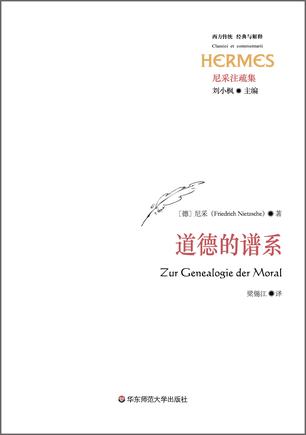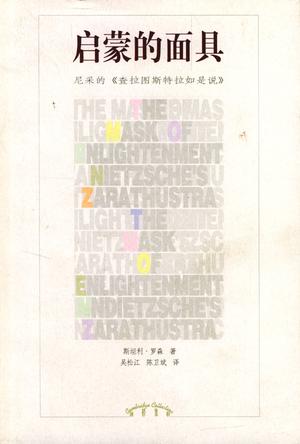-

道德的谱系
在尼采的所有著作中,《道德的谱系》(1887年)可能是最难懂也最具独创性的。 《道德的谱系》的主旨并不在于探问道德的未来,而是探问道德的过去,道德的来源与历史,即那依然笼罩在黑暗之中,或者至少是向黑暗深处延伸的来源与历史。《道德的谱系》为道德制定了一个家谱,而其副标题“一篇论战檄文”则暗示着,尼采将在这里探讨一些颇具挑衅性的东西,读者很快就会知道,被我们今天视作高贵正派的那些价值却有着粗俗鄙陋的起源,而善与恶则有着非常可疑的祖先。 -

启蒙的面具
-

Beyond Good and Evil
Purchase one of 1st World Library's Classic Books and help support our free internet library of downloadable eBooks. Visit us online at www.1stWorldLibrary.ORG - - 1. The Will to Truth, which is to tempt us to many a hazardous enterprise, the famous Truthfulness of which all philosophers have hitherto spoken with respect, what questions has this Will to Truth not laid before us! What strange, perplexing, questionable questions! It is already a long story; yet it seems as if it were hardly commenced. Is it any wonder if we at last grow distrustful, lose patience, and turn impatiently away? That this Sphinx teaches us at last to ask questions ourselves? WHO is it really that puts questions to us here? WHAT really is this "Will to Truth" in us? In fact we made a long halt at the question as to the origin of this Will - until at last we came to an absolute standstill before a yet more fundamental question. We inquired about the VALUE of this Will. Granted that we want the truth: WHY NOT RATHER untruth? And uncertainty? Even ignorance? The problem of the value of truth presented itself before us - or was it we who presented ourselves before the problem? Which of us is the Oedipus here? Which the Sphinx? It would seem to be a rendezvous of questions and notes of interrogation. And could it be believed that it at last seems to us as if the problem had never been propounded before, as if we were the first to discern it, get a sight of it, and RISK RAISING it? For there is risk in raising it, perhaps there is no greater risk. -

From Hegel to Nietzsche
This acknowledged classic is one of the most important works on nineteenth-century philosophy and intellectual history, and a philosophical and cultural history of that century and its impact upon the twentieth. Beginning with an examination of the relationship between Hegel and Goethe, Lvwith discusses how Hegel's students, particularly Marx and Kierkegaard, interpreted----or reinterpreted----their master's thought, and proceeds with an in-depth assessment of the other important philosophers, from Feuerbach, Stirner, and Schelling to Nietzsche. -

Thus Spake Zarathustra
-

Beyond Good & Evil
Nietzsche proposes in "Beyond Good and Evil" a system of inquiry and analysis known by the phrase 'history as critique.' This straightforward manner of investigation leads Nietzsche to question all of culture's most venerated conventions: science, religion, politics, decency and linguistic stock. He begins this process by overriding tradition when he says "only that which has no history can be defined." An explanation of virtue, for example, can only be written when the defintion eludes all possible requisites of custom and habit. We cannot properly administer the philosophical aspects of morality except through divine direction, suspicion, or an unexamined dependence on tradition. Because of this, Nietzsche calls to question the foundational premise that it is best for human beings to seek the truth. How do we know that mendacity isn't better? What is truth, anyway? He disputes the intention of the traditional esoteric venture. He unburdens all sources of cultural incontestability and claims to fixed truth which empties them of their value: "...we modern men, like semi-barbarians...reach 'our' bliss only when we are most in danger." Since we are in a process of perpetual adaptation we cannot be defined by any indigenous quality. Instead of adopting a class consciousness for purposes of easy identification Nietzsche asks that we establish an amplified sense of responsibility to our own luxurious creativity. He declares there is a higher calling: an unassisted life of intense but private joy, anguish, fortitude, perception, and constructive preparation.